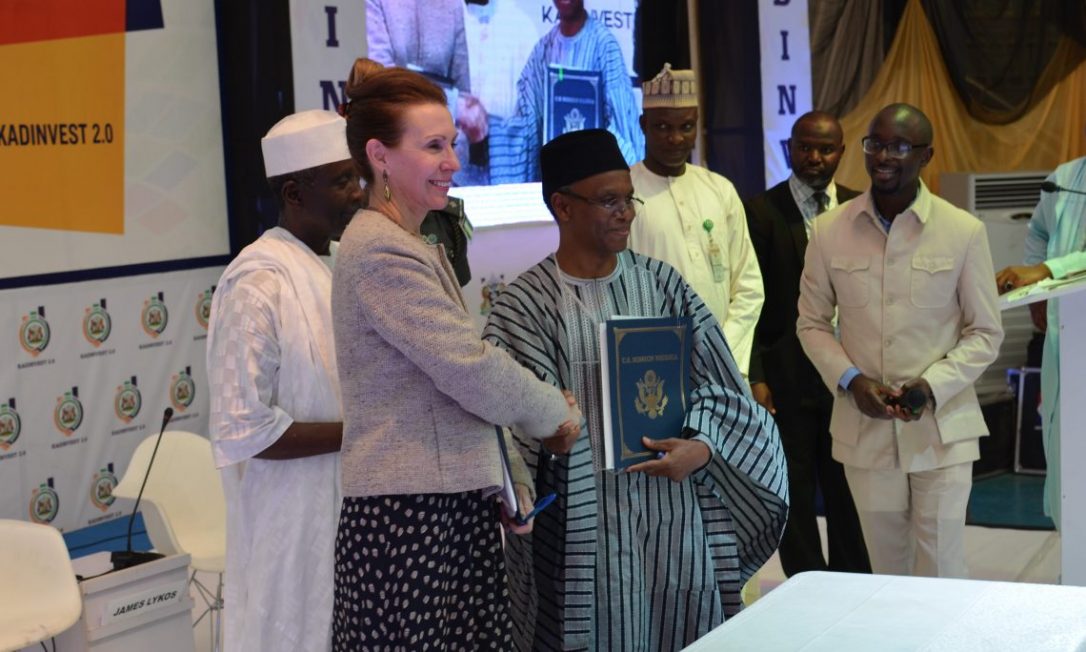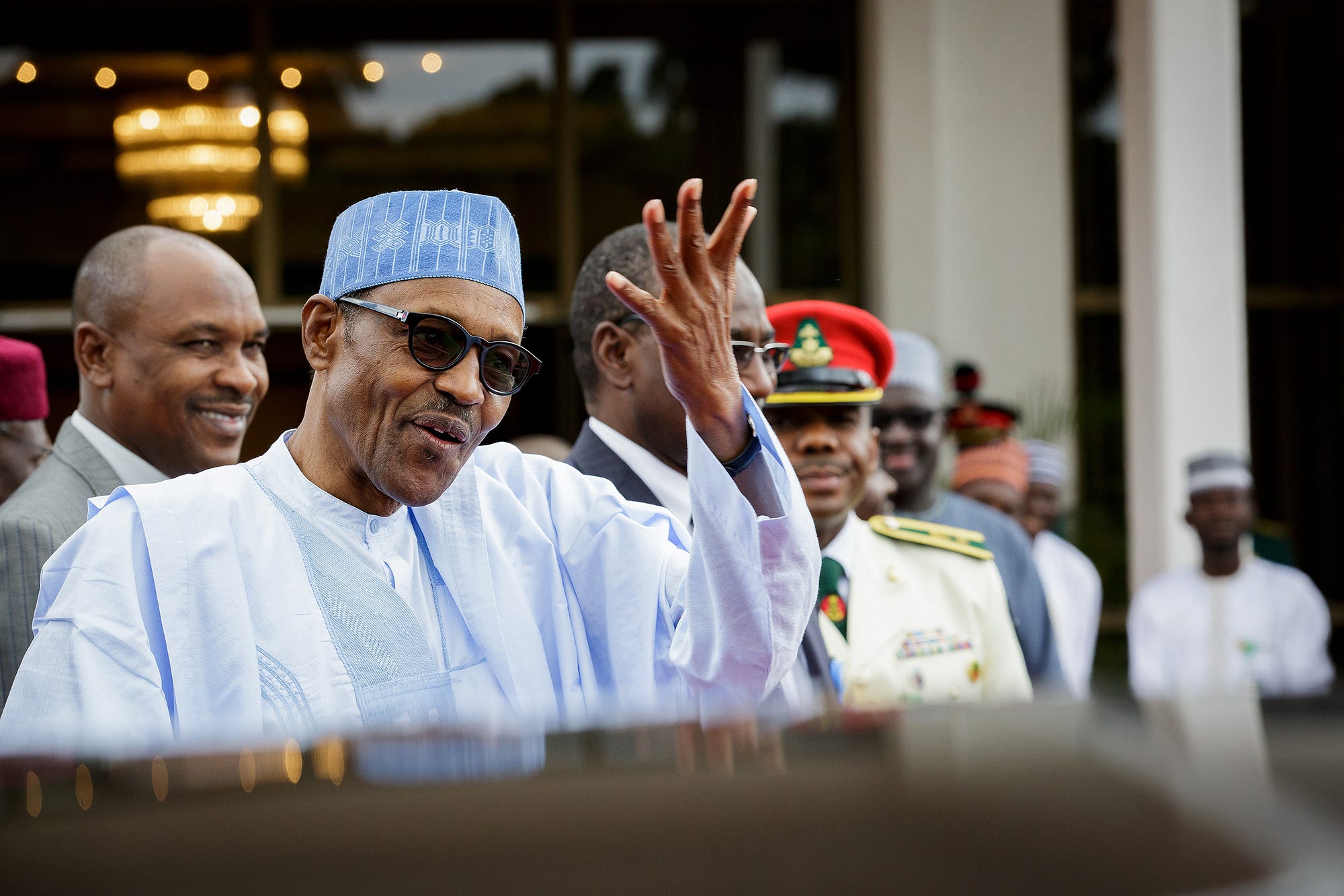The U.S. government, through the Agency for International Development (USAID), has announced at the Kadinvest 2.0, its continuing support to the economic sector in Kaduna State with the signing of a Memorandum of Understanding (MOU) by the USAID Acting Mission Director Julie A. Koenen and His Excellency the Governor of Kaduna State, Mallam Nasir Ahmad El-Rufai.
The ceremony took place on April 5 at Kadinvest 2.0, Kaduna’s annual conference on economic development. The Kaduna State government used the opportunity to reaffirm its commitment to achieving sustainable economic growth by creating mechanisms to make it easier to do business, and aligning its budget to capital expenditure in order to build both human capital and infrastructure.
This three-year MOU outlines the shared and individual commitments to help drive economic development collaboration between USAID/Nigeria and the Kaduna State Government. These include:
- Strengthening the agriculture sector through increased agricultural productivity of selected value chains, expanded market participation, increased access to finance and an improved business enabling environment
- Developing the capability of Kaduna State Government to manage water and sanitation resources
- Increasing access to and availability of power in Kaduna State


